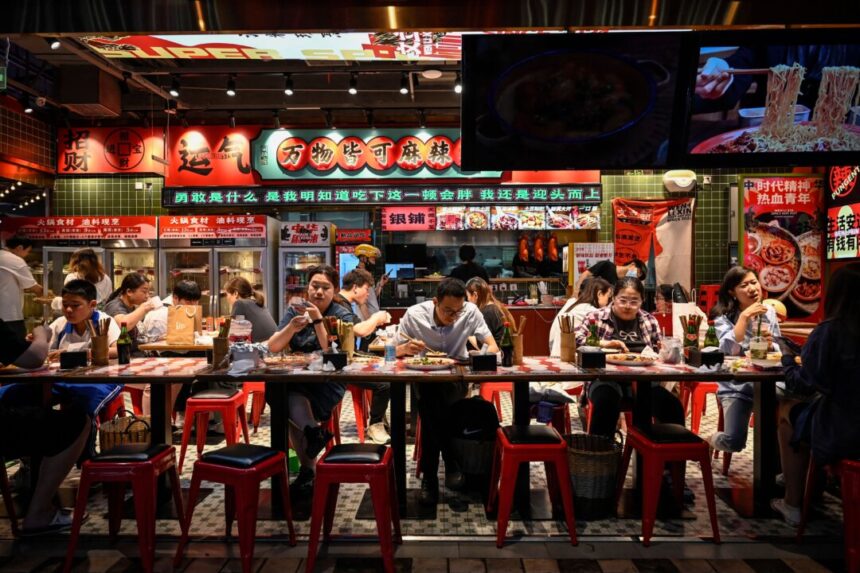Chinese restaurant chains are aggressively entering overseas markets with low prices, posing challenges for local businesses. This new form of dumping, offering services cheaper than domestic prices in recipient countries, is causing disruptions globally. Mixue Ice Cream & Tea, a Chinese chain known for its affordable products, is expanding into the U.S. after successful ventures in Asia. The company’s low-price strategy has caused issues in Southeast Asia, with franchise owners protesting against demanding discount promotions. This trend, driven by China’s low domestic demand and price-war mentality, is expected to continue as the economy declines. Mixue, a leader in China’s beverage market, has over 30,000 stores nationwide and is rapidly expanding internationally. However, its low-cost approach may harm local businesses, market diversity, and innovation, potentially leading to anti-dumping investigations. Other Chinese food service brands are following suit, expanding aggressively into Southeast Asia due to China’s long-standing price wars driven by low domestic demand. Despite China’s economic growth, many citizens still have low incomes, prompting businesses to compete through lower prices. The CCP’s focus on economic expansion rather than raising incomes for the general population exacerbates this issue.
Huang pointed out that the CCP sees the low incomes of ordinary Chinese citizens as an advantage.
“By keeping a large portion of the population in poverty, the authorities are able to utilize this workforce at minimal expense – people work long hours in jobs they might not enjoy, driving China’s economy forward while keeping labor costs down,” he explained to The Epoch Times.
China Shock 2.0
Sun noted that the expansion of these Chinese brands can be considered part of China Shock 2.0, as their competitive pricing poses significant challenges for local competitors.
The term “China Shock” refers to the widespread job losses in many countries, especially in manufacturing, following the influx of inexpensive Chinese goods into the global markets after China’s entry into the World Trade Organization in 2001.
“Unlike the previous wave that focused on manufacturing, this new disruption extends to the service and consumer sectors, creating fresh obstacles for local enterprises. Many small businesses may struggle and face closure,” Sun added.
Countries in Southeast Asia are taking notice.
In Thailand, where Mixue has rapidly opened 200 outlets in under two years, the country’s Restaurant Association has expressed concerns about the rise of Chinese-owned businesses.
The Federation of Thai Industries, specifically the Food and Beverage Industry Division, has raised red flags about the rapid growth of low-cost Chinese restaurant chains, cautioning that it could negatively impact the local food service industry. Additionally, the federation has urged the government to ensure the safety and compliance of imported ingredients and strengthen measures against the influx of cheap services.
In Vietnam, local chain ToCoToCo has experienced declining sales among young consumers due to fierce competition from Chinese brands. Reports from local media indicate that the company has faced three consecutive years of losses, prompting adjustments to its business strategy.
Sun predicts that countries affected by China Shock 2.0 may soon introduce policies to mitigate the influence of inexpensive Chinese brands to safeguard domestic markets and support local enterprises.
Vietnam and Thailand have recently bolstered their anti-dumping measures against Chinese products. However, existing anti-dumping regulations in both countries primarily focus on physical goods, lacking specific provisions targeting services offered by Chinese brands.





